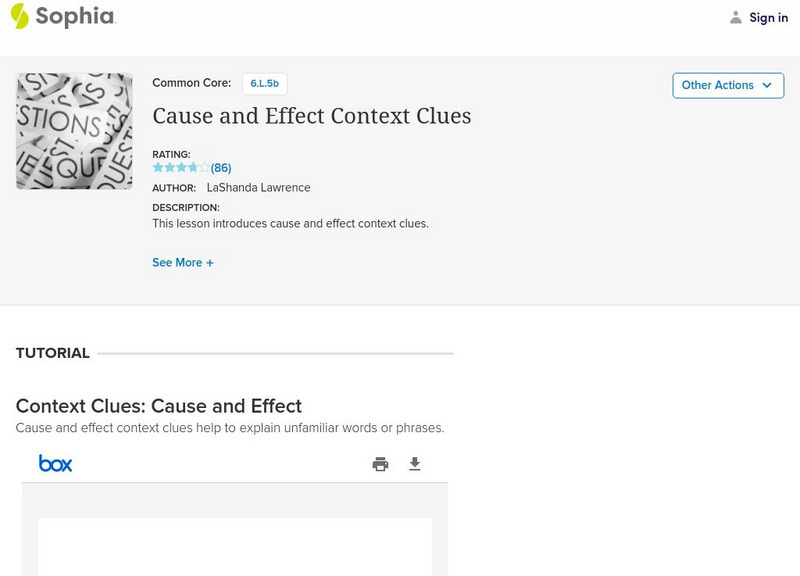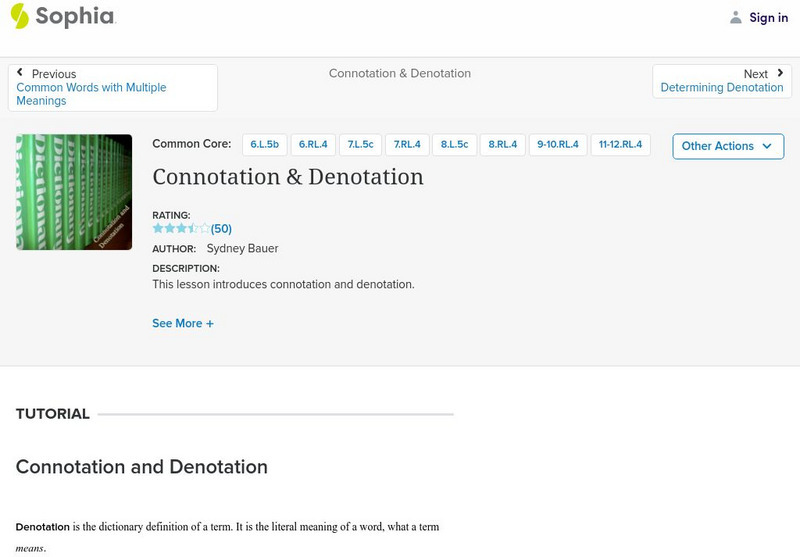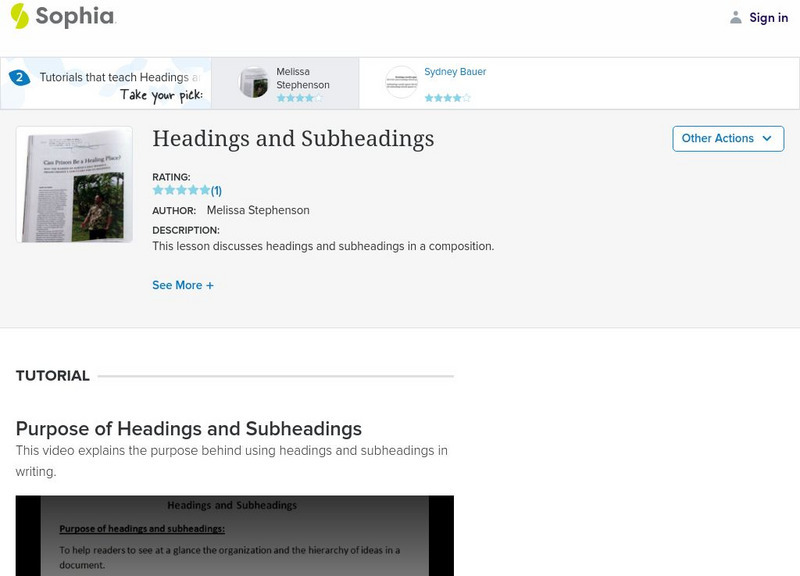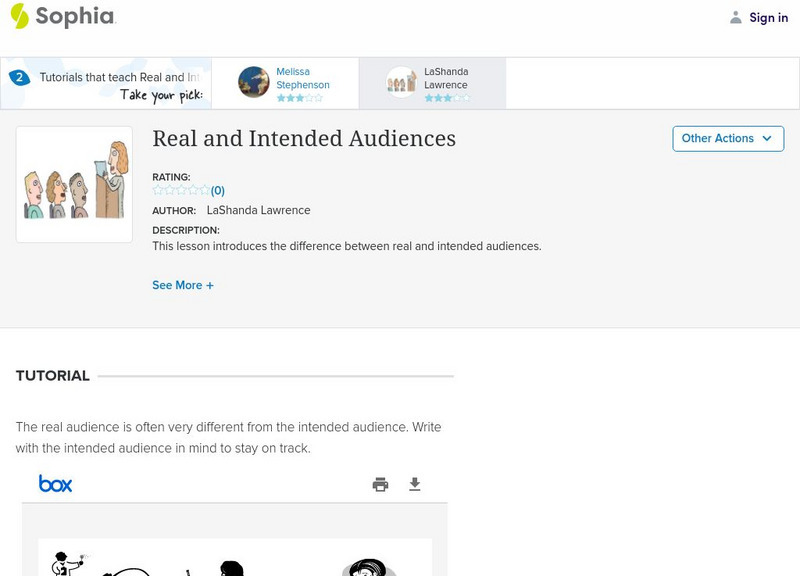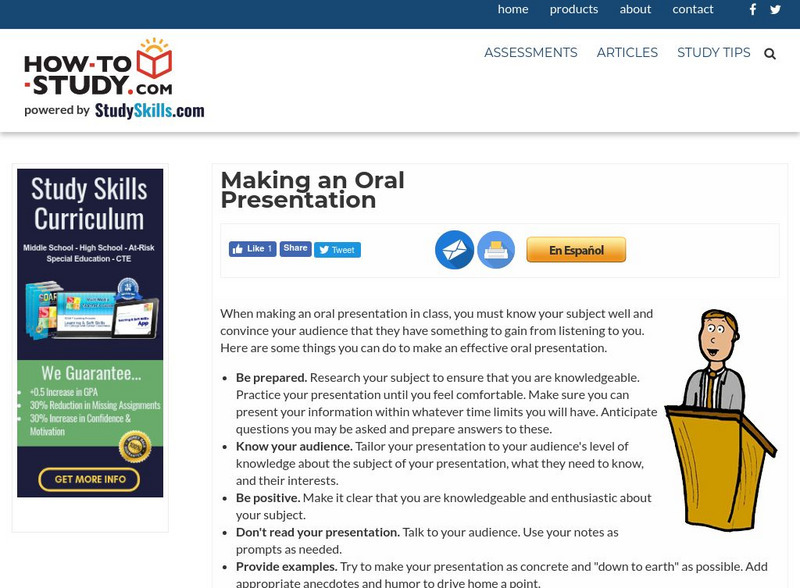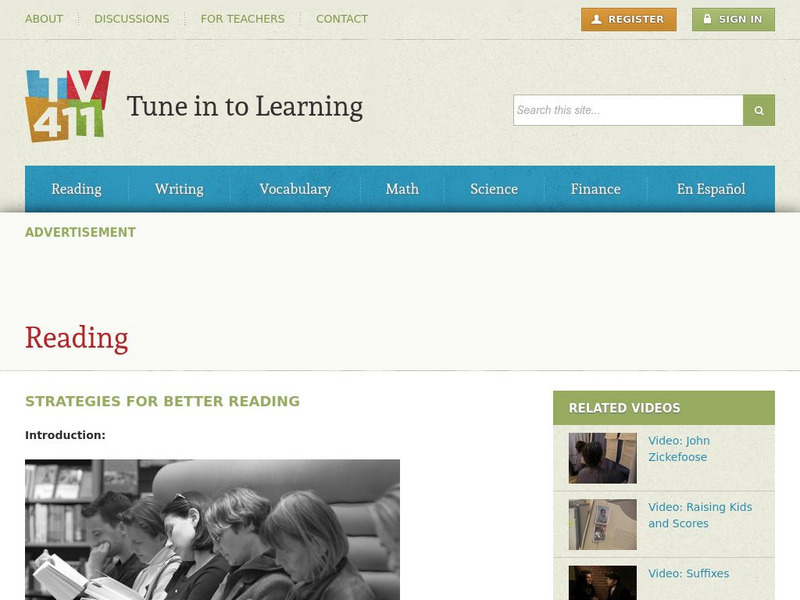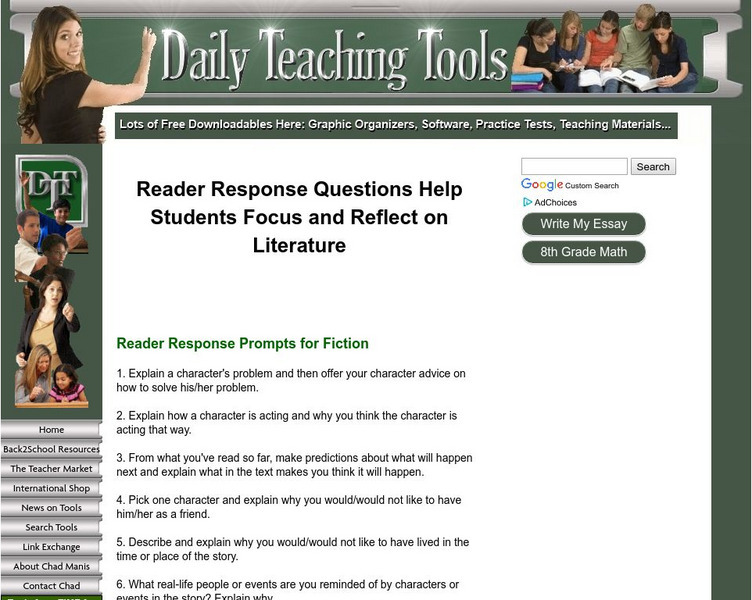Annenberg Foundation
Annenberg Learner: Literature: Constructing Plot
This site has an explanation of the elements of a plot with clear examples. Click on "What goes into plot" for more information.
Sophia Learning
Sophia: Cause and Effect Context Clues
This lesson introduces cause and effect context clues.
Sophia Learning
Sophia: Chronological Transition Words
This slideshow lesson focuses on chronological transition words; it defines and lists the categories of transition words. It defines chronological transition words, states their purpose, provides a list of them, and shows how to write...
Sophia Learning
Sophia: Common Roots and Their Meanings
This slideshow lesson introduces common roots words (or base words) and their meanings. It explains that some can stand alone while others require prefixes or suffixes to form words. L.9-10.4b Patterns/word changes
Sophia Learning
Sophia: Connotation and Denotation
This lesson discusses connotation and denotation; it defines each and provides examples showing how words can have very similar denotations but very different connotations. This information is offered in text and audio.
Sophia Learning
Sophia: Headings and Subheadings
This tutorial uses two short videos and a PDF handout to explain how and when to use headings and subheadings. Video 1 explains the purpose of headings and subheadings and why and when to use them; video 2 discusses how to format and...
Sophia Learning
Sophia: Real and Intended Audiences
This slideshow focuses on real and intended audiences including defining them, listing audience types, discussing the purpose of writing to an audience, and things to avoid.
BBC
Bbc Bitesize Revision: Dialogue and Description
As part of a revision and writing section of BBC Bitesize, this page provides several tips involved in writing dialogue and description for short story fiction.
Other
Squigly's Games: Squigly's Word Star
In this interactive game, students select a category and then play a hangman-style game by trying to spell out a word related to the category before they run out of stars.
Other
Spelling It Right: Learn How to Spell Confidently
Free help with spelling from an experienced English teacher! Worksheets, advice, and help are available. The worksheets are each a complete lesson on a specific spelling skill. L.9-10.2c Spelling, L.11-12.2b Spelling
Houghton Mifflin Harcourt
Holt, Rinehart and Winston: Analyzing a Story's Theme [Pdf]
A short set of questions designed to help students consider and analyze the element of theme within a piece of literature. RL.9-10.2 and RL. 11-12.2 Analyzing Theme.
BBC
Bbc Bitesize Revision: Openings and Endings
As part of a revision and writing section of BBC Bitesize, this site goes over several tips involved in writing both openings and endings.
Other
How to Study: Making an Oral Presentation
Ten useful ideas for making oral presentations more effective and interesting. CCSS.ELA-Literacy.CCRA.SL.4
English Club
English Club: Learn English: Grammar: Tenses Quiz 2
Choose the correct verb tense for each of the ten sentences in this quiz. Check answers and see percentage score upon completion.
Houghton Mifflin Harcourt
Holt, Rinehart and Winston: Elements of Literature: Plot Outline [Pdf]
A graphic organizer for students, laying out the basic outline of a story's plot and allowing students to fill in the necessary details.
Sophia Learning
Sophia: Connotation and Denotation: Lesson 2
This lesson discusses the difference between connotation and denotation. It is 2 of 2 in the series titled "Connotation and Denotation." L.11-12.5b Nuance
Education Development Center
Tv411: Tune in for Reading: Reading: Strategies for Better Reading
Self-checking interactive tutorial puts reading comprehension skills to work by asking learners to make inferences, predict what happens next, and identify the main ideas in a series of short reading passages. Related materials include...
Quia
Quia: Reading: Finding the Main Idea
Students read forty short texts and choose the main idea of each text. Correct answers are provided for any missed, and the score is tallied along the way.
Polk Brothers Foundation Center for Urban Education at DePaul University
Depaul University: Center for Urban Education: I Can Make an Inference [Pdf]
Students can use this graphic organizer to help them make inferences about the information in a text and then explain the rationale for each.
Writing Fix
Writing Fix: Revision Dice [Pdf]
Revision can be a difficult process for students. With a roll of the dice, students are reminded of the steps they can take to improve their writing. Includes templates for four types of dice that focus on ideas, organization, voice, and...
Sophia Learning
Sophia: Critiquing a Source
This lesson goes over how to critique a research source for reliability. W.11-12.8 Sources/Integrate/Cite
Daily Teaching Tools
Daily Teaching Tools: Reader Response Quest. To Focus and Reflect on Literature
Daily Teaching Tools provides nineteen reading response prompts for fiction and six reading response prompts for nonfiction. W.11-12.9a Amer Lit 18th,19th, 20th cen/Analy
Love To Know Media
Your Dictionary: Teaching Kids About Reflective Writing
This site offers ideas to encourage children to practice reflective writing and tips for teachers to teach it.
Love To Know Media
Your Dictionary: Using Reflective Writing in the Classroom
This article discusses the use of reflective writing in class including the uses such as summarize what was learned, writing about what they read, and keeping a reflective journal and the benefits of reflective writing.



